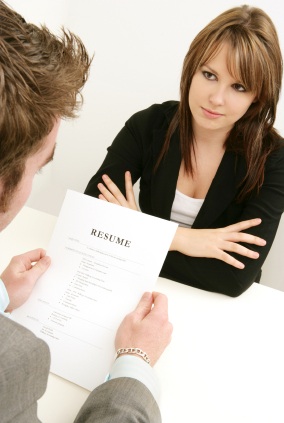You're a hiring manager.... You feel the pain....
Sometimes it's more obvious than others when a candidate just isn't right for a particular job. It may be because his or her experience doesn't support the needs of a given role, or there may be an attitude problem that you fear will get in the way, or it might be something as simple as a personality that just doesn't complement the organization's culture. Other times, however, it's not so easy to tell whether you've got the "right" person sitting in front of you interviewing for a job. But when you consider that it's impossible to have a business without people, and how hard it is to get individuals to change in the first place, it's easy to appreciate how crucial it is to the success of a company that it make the right hiring choices from the start. Otherwise, resources are squandered on training, coaching and management after the fact when it's too late, and organizations try fruitlessly to change the nature of who their employees are, only to gain little-to-no traction as a result. Therefore, the best hiring practices are those that emphasize the beginning of the employment cycle so as to ensure that investments in employee development pay off down the road.
 Let's face it, there is no foolproof way to guarantee a 100% perfect hiring record. An interview is simply not enough time to "know" someone well enough to make a deeper judgment about who he or she is, professionally, personally, ethically, interpersonally, intellectually and so on.... In fact, some of my worst hires have been the people who gave the best interviews. But on the other hand, some of my best hires have also come from people who interviewed well. And therein lies the rub. How do we know when a candidate is real or when he or she is full of it? Unfortunately for everyone charged with interviewing and hiring, there are people who have perfected their ability to make pretend they are something that in truth, they are not. The problem is that there is no way to tell the frauds apart from the authentic candidates who truly are what they say they are.
Let's face it, there is no foolproof way to guarantee a 100% perfect hiring record. An interview is simply not enough time to "know" someone well enough to make a deeper judgment about who he or she is, professionally, personally, ethically, interpersonally, intellectually and so on.... In fact, some of my worst hires have been the people who gave the best interviews. But on the other hand, some of my best hires have also come from people who interviewed well. And therein lies the rub. How do we know when a candidate is real or when he or she is full of it? Unfortunately for everyone charged with interviewing and hiring, there are people who have perfected their ability to make pretend they are something that in truth, they are not. The problem is that there is no way to tell the frauds apart from the authentic candidates who truly are what they say they are.
So to minimize your risk of selecting the wrong candidate and maximize your chances of choosing the right ones, here are a few simple guidelines.
•Get multiple points of view from people you respect. Don't rely on your opinion alone.
•Listen to your gut, but not just on a surface level. Dig deeper to try to understand what your instincts are telling you.
•Define not just the role, but also what the "right" candidate "looks" like. Think about skills, cultural fit, sense of humor, personality, experience, values, attitude and style, and which specific characteristics will fit best into your organization.
•Look for evidence of accomplishments. Ask candidates what results they have produced in their previous jobs as opposed to having them explain "what they did." It's different. You want to know what they delivered.
•Meet more than once. Use this as an opportunity to change the structure or content of the interview in order to provide multiple views of the candidate.
•Craft questions that will produce answers that you want and need. Be creative. The same-old, same-old isn't likely to get you very far.
Image credit: iStockphoto
Find Donna on Facebook and Krysalis.com